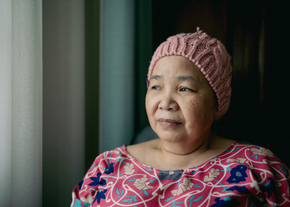
Suicide Prevention, Emotional and Mental Health Support

Suicide Prevention, Emotional and Mental Health Support
Supporting mental well-being starts with awareness and early care. When we reach out for help or take small steps during difficult times, we create space for healing, growth, and lasting positive impact. With prevention and timely support, well-being—and real hope—are within reach.
If you or someone you know is in immediate crisis, call or text 988 for the Idaho Crisis & Suicide Hotline (available 24/7). You may also call 911 or go to the nearest Emergency Department for evaluation.
Know the Facts, Find Help
- Idaho has the fourth highest suicide rate in the country.
- Asking about suicide does not increase the likelihood of an attempt.
- Someone who is suicidal is often uncertain and acts impulsively. After receiving support, people who have thought about or attempted suicide can go on to live long lives.
- A large majority (95%) of adults would do something if they were worried about someone's mental health or if they were thinking about suicide. (Harris Poll, 2024).
Protective Factors that Decrease Risk

Personal Factors
Development of resilience and frustration tolerance, as well as good coping and problem-solving skills. Religious beliefs may also provide strength and inspiration.

Safe Environments
Easy access to places with other people, such as a library or coffee shop. This should be balanced with limited access to means for self-harm, such as drugs, guns, and medication.

Social Support
Meaningful relationships with people who can offer emotional or material support, or provide distraction. For youth, ensuring a connection with a trusted adult.

Future Orientation
A focus on hope, responsibilities to others (such as family and/or pets), and knowing reasons for living (such as contributions, duties, and beliefs about death/dying).





